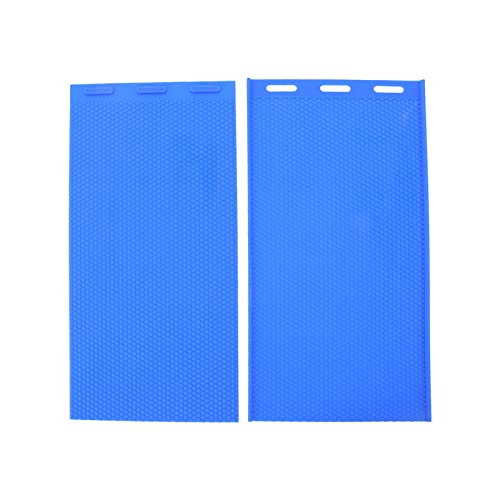thenovice
Field Bee
- Joined
- Apr 29, 2014
- Messages
- 533
- Reaction score
- 1
- Location
- Canterbury
- Hive Type
- 14x12
- Number of Hives
- Aim for 4 but tend to end with 15
treated with Maqs last week as Varroa was out of controp (drop over 50 a day and lots of brood damage) .
I am on Open mesh floor and had a crown board in with the 2 big holes in it for the clearer thingies on top so plenty of ventilation.
yesterday, 7 days later, I checked and saw the queen but hardly any eggs and a very nice supersedure cell. very disappointed as I just bought this queen this spring and despite the varroa, she was doing well.
will the bees tear down the supersedure cell if she comes back into lay? Are there any other things you can do to make Maqs less harsh on the queen and brood (except for reducing the dose?)
I am on Open mesh floor and had a crown board in with the 2 big holes in it for the clearer thingies on top so plenty of ventilation.
yesterday, 7 days later, I checked and saw the queen but hardly any eggs and a very nice supersedure cell. very disappointed as I just bought this queen this spring and despite the varroa, she was doing well.
will the bees tear down the supersedure cell if she comes back into lay? Are there any other things you can do to make Maqs less harsh on the queen and brood (except for reducing the dose?)

















































